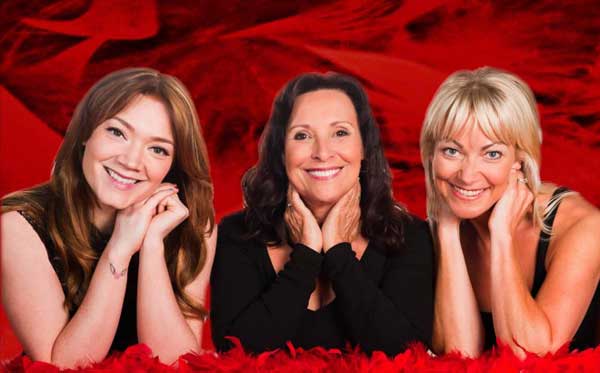
Review: The Vagina Monologues
Venue: Grand Opera House, York, November 15
It is one of the best known – and most controversial – touring stage plays. We asked two women writers with different perspectives on feminism to give their verdict on The Vagina Monologues
The feminist’s view
Vagina. Vagina, vagina, vagina… This word has the power to shock, to make a woman – or man – squirm with embarrassment.
Its general everyday use is limited – I mean, who says vagina?! This is all part of the “sit up and listen” premise behind Eve Ensler’s Vagina Monologues, and it works.
The production at the Grand Opera House was unlike the other versions I had seen. There were just three actors onstage – Hollyoaks‘ star Hollie-Jay Bowes, former Loose Woman Terri Dwyer and the timeless Diane Keen – each embodying different roles throughout the evening.
Their performances were great. Together they commanded the otherwise empty stage and effortlessly had the audience in fits of laughter followed by pensive silences.
There were however, moments when accents slipped and the power of a monologue was lost in an almost farcical Bosnian accent. Yet this was possible to forgive – it would have been a flat performance to watch if personas had not been adopted!
What I found troublesome was the assumed “type” of audience member that the performers kept referring to and interacting with. Admittedly, most in the audience were female and middle-aged – I only saw three men.
And these women howled with laughter at the mention of the C-word which was overtly used during one monologue in order to “reclaim” the word and its connotations. Yet, as a 24 year old, I do not share the same shock and awe at this word. I use it.
Yes, it is still powerful and should be used sparingly in my opinion (or not at all in my mum’s opinion). But this is the point: The Vagina Monologues relies on an out-dated philosophy of feminism and is pitched towards a certain type of audience: female, white, privileged, middle-aged.
If Ensler was attempting to inform women like herself about the atrocities that other women face in the world (alongside monologues that scream “c***” or fake orgasms or graphic and disturbing stories of rape in Bosnia and the Congo), then I believe she achieves this.
But I also believe that her idea needs to be updated, and not just by slipping in references to current culture, but by using a different framework altogether.
I found the moments of interaction alienating – so I cannot imagine how the men in the audience felt. In my opinion men need to be included in the understanding of rape, violence and vaginas.
The Vagina Monologues and feminism needs to be about inclusion and equality, otherwise where is the space for progression?
Jess Durham
The non-feminist’s view
I have to admit that when YorkMix first asked me to review The Vagina Monologues I was sceptical. I thought this is going to be a crazed feminist preaching about the superiority of the vagina.
I didn’t know anything about what the story was about: I thought I would surprise myself.
Now I wouldn’t say I’m an anti feminist. I simply think that women should be happy that we’re in an age where we are on the same footing as men.
I am a strong enough woman to challenge any man who would say we are not equal. Whether you have a vagina or cock you have to admit that we need each other to make the world go round.
Unsurprisingly there were very few men in the audience, but what did surprise me were the large groups of older women. These women clearly loved the tongue in cheek content; in truth I don’t think I’ve been to a play where I’ve heard so much laughter. I cannot fault the production or the actresses.
The play seemed suited to a hen do, the content was sometimes pornographic, but maybe this is why the women liked it as it seemed to make porn acceptable. I’m sure most men would feel this is was a double standard.
I also didn’t enjoy the use of the C-word. The actresses would repeat it over and over again but this doesn’t make it OK.
What I felt was misplaced was moving from one light-hearted tale to the terrible issues of female genital mutilation or rape.
Of course, when mentioning the vagina, it would be unrepresentative not to mention the times women are abused. I was pleased to hear that a percentage of the costs of the ticket price went to Congo where they face the reality of FGM and rape.
Maybe the play was a way to raise these issues so women could understand the devastating effects. I don’t know if it was suppose to be a comedy but it was enjoyable nonetheless.
I didn’t know what to expect from this play, or whether it was supposed to be a comedy, but it was enjoyable nonetheless.
Tasha Barclay
